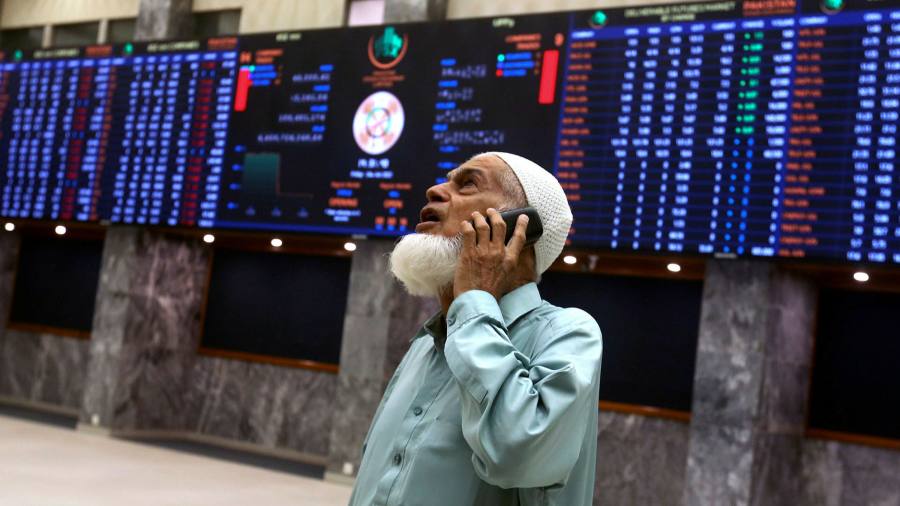A consortium of Chinese state-owned banks has loaned $2.3 billion to Pakistan to help the country avert a foreign payments crisis, Finance Minister Miftah Ismail said Friday.
The confirmation of support from China, a close economic and military ally of Pakistan, came on the same day that Islamabad announced a one-off 10 percent “super tax” on key industries that should lead to a stalled $6 billion IMF loan package resumes. .
“I am pleased to announce that a Chinese consortium loan of Rmb15 billion ($2.3 billion) has been credited to SBP [State Bank of Pakistan, Pakistan’s central bank] account today, increasing our foreign exchange reserves,” Ismail said in a tweet on fridaynight.
A senior government official said the loan’s arrival was “one of the signals that we are about to return to the IMF program”.
China had quietly urged Islamabad to restore ties with the IMF “as an essential step to improve Pakistan’s economic health and avoid bankruptcy,” the official said.
The Chinese loan will boost Pakistan’s liquid foreign reserves from $8.2 billion to $10.5 billion and could help support the rupee, which has fallen against western currencies.
Pakistan began receiving IMF payments under a 39-month loan program in 2019, but the fund has only given about half of the $6 billion agreed so far.
In recent months, declining confidence in the Pakistani economy has raised concerns that it could follow Sri Lanka’s default in international debt.
Prime Minister Shehbaz Sharif, who was elected to parliament in April after the ouster of rival Imran Khan, unveiled Friday the new supertax to be levied on manufacturers of cement, beverages, steel, tobacco and chemicals.
“The government has decided to impose a 10 percent ‘poverty relief tax’ on the country’s large-scale industries,” Sharif tweeted†
Business executives criticized the move and stock prices on the Karachi Stock Exchange plunged nearly 5 percent after news of the tax emerged. Analysts said the decision would fuel inflation, a central concern for households across Pakistan.
Zaffar Moti, former director of KSE, said: “This is a major setback for the economy. The government has decided to further tax those who are already paying their taxes.”

